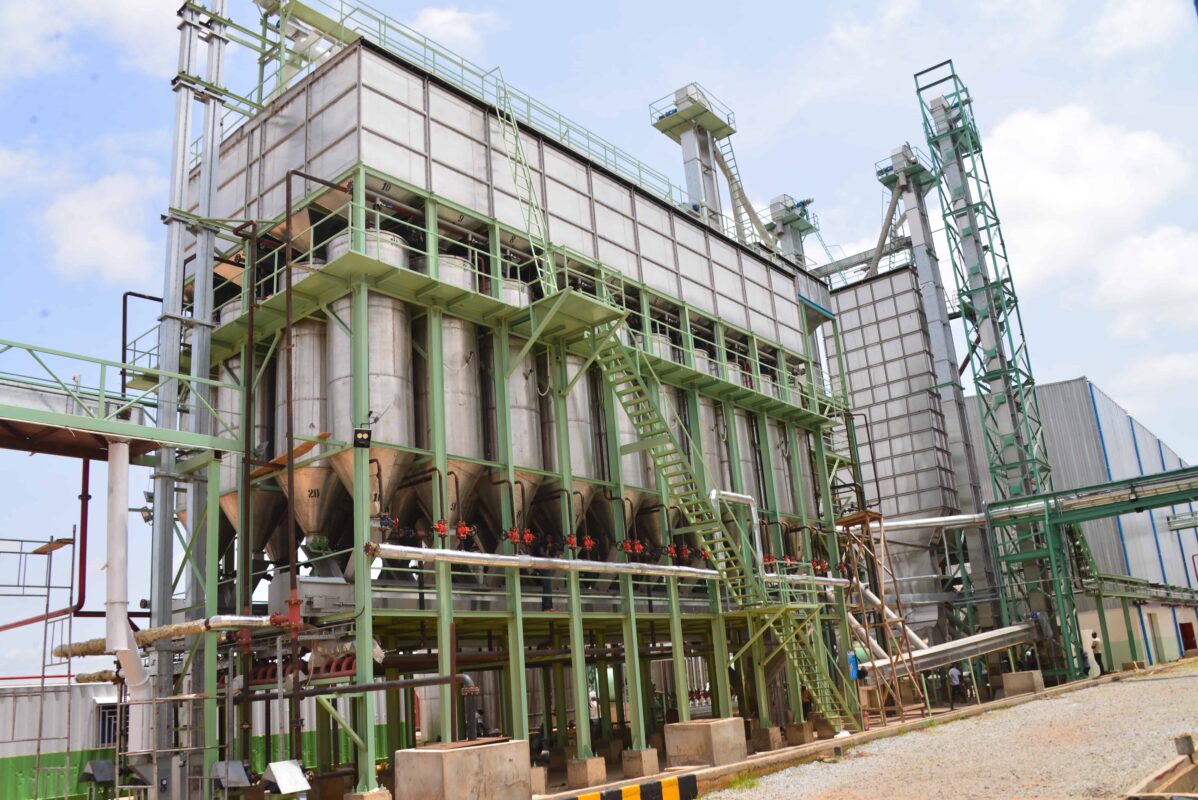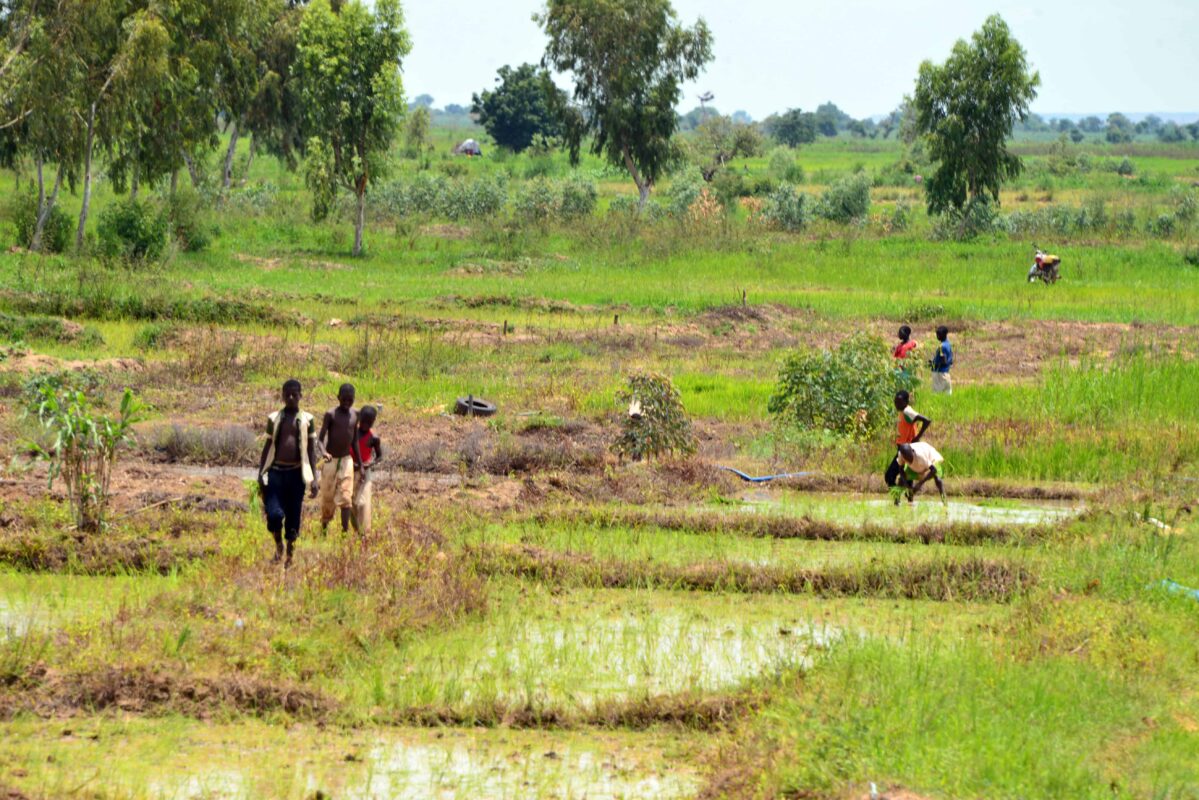Le Centre de commerce et d'investissement de l'USAID en Afrique de l'Ouest s'associe à la société nigériane WACOT Rice Ltd.. pour élargir sa base de riziculteurs, en mettant l'accent sur la création de programmes qui élèvent les jeunes et les femmes dans son réseau de producteurs.
La subvention de co-investissement du Trade Hub de $1.5 millions soutiendront directement les projets de WACOT $8.6 millions d'investissements dans son projet d'expansion du producteur Argungu, qui vise à embarquer plus de 5,000 nouveaux riziculteurs, leur fournir des fournitures et des formations pour cultiver leurs terres. WACOT s'attend à ce que l'investissement conduise à un 50 pourcentage d'augmentation du rendement pour les agriculteurs, leur permettant de réinvestir leurs bénéfices dans des domaines critiques pour accroître leur production et améliorer leurs moyens de subsistance.
« L’impact global est d’améliorer le rendement par hectare et d’aider les agriculteurs à améliorer leurs moyens de subsistance.,dit Habiba Suleiman, Responsable stratégie et développement commercial chez WACOT, qui est une filiale de Groupe d'investissements généraux tropicaux. "Je suis tellement convaincu que c'est un pas dans la bonne direction."
Financé par les États-Unis. Agence pour le développement international, le Centre du commerce est en train de forger des partenariats public-privé uniques pour débloquer des capitaux, créer des emplois, et catalyser une croissance économique durable dans la région. Avec pour priorité majeure d’accroître la sécurité alimentaire au milieu d’une population ouest-africaine en croissance rapide., le partenariat avec WACOT Rice répond à un pilier essentiel du Trade Hub’la mission de l'USAID’les objectifs de la région.
« Les États-Unis. Le gouvernement est heureux de s'associer au secteur privé nigérian pour développer des solutions axées sur le marché et améliorer durablement la sécurité alimentaire en soutenant la production locale de riz.,» déclare Anne E, directrice de mission de l'USAID.. Patterson. « Avec ce nouveau partenariat de co-investissement, Les petits exploitants agricoles de l’État de Kebbi peuvent augmenter leurs rendements et améliorer les moyens de subsistance de leurs familles.

Répondre à la demande locale, améliorer la sécurité alimentaire
Le riz est un aliment de base pour les familles nigérianes, qui consomment plus de 7 millions de tonnes par an. Dans ce que l’on appelle aujourd’hui la « révolution du riz » au Nigeria,« Au cours des dernières années, le Nigeria est passé de l'importation de la majorité de son riz d'Asie à la production de la majeure partie dans les rizières locales..
Même si la demande locale est loin d’être satisfaite, des entreprises comme WACOT s'efforcent de transformer les terres arables en opportunités permettant aux communautés d'entrer dans la chaîne de valeur du riz. Maintenir la production alimentaire locale pour des produits de base comme le riz renforce les économies, réduit sa dépendance à l’égard des importations et atténue l’impact environnemental d’un système d’approvisionnement alimentaire mondial défaillant.
Cette subvention de co-investissement est directement liée à l’un des objectifs majeurs du Trade Hub: renforcer la sécurité alimentaire et l’autonomie du Nigeria. Nourrir l'avenir, les États-Unis. initiative du gouvernement pour réduire la faim dans le monde, finance l’accord du Trade Hub avec WACOT. Feed the Future vise à accroître l’accès des pauvres à des aliments nutritifs et à transformer le secteur agricole.
« La sécurité alimentaire est essentielle en raison de la très grave pauvreté dans ces communautés," dit Soliman. « Ce cycle continue de se répéter. Les petits exploitants sont généralement propriétaires d’un demi-hectare de terre dont ils ont hérité, et le travail agricole, ce sont les femmes et les enfants, sans mécanisation, ce qui entraîne des pertes de récoltes.
Les pertes de récolte constituent un point de pression critique pour la chaîne de valeur du riz dans l’État de Kebbi. Selon WACOT, les riziculteurs perdent des quantités importantes de riz à chaque cycle de culture en raison du manque de connaissances techniques, accès aux routes, aux installations de broyage et de stockage et aux intrants de qualité. Son projet d'expansion des planteurs Argungu prévoit d'endiguer les pertes inutiles de riz en fournissant des intrants agricoles de haute qualité tels que des semences hybrides et des engrais., formation et accès direct au marché.
Surtout, WACOT garantit également le « prélèvement » en fin de récolte, ce qui signifie que les agriculteurs ne seront pas lésés s’ils ne peuvent pas vendre leur riz au juste prix du marché si la demande fluctue.
L’innovation technologique est une autre pièce du puzzle pour accroître la sécurité alimentaire tout en garantissant que les producteurs ne sont pas laissés pour compte et qu’ils sont pleinement intégrés dans le système de production rizicole.. Maintenir la transparence et une bonne communication entre les agriculteurs et l’entreprise, WACOT offre un accès aux applications de culture du riz et utilise son système de gestion agricole pour suivre l'activité des petits exploitants agricoles., offrir des orientations opportunes sur les pratiques agricoles et surveiller la production.
« En termes de revenus, [ce projet] les aide à envoyer leurs enfants à l'école, pour accéder à de meilleurs moyens de subsistance, avoir accès à de meilleurs soins de santé et à une meilleure alimentation," dit Soliman.

Investir dans les femmes et les jeunes
En raison des barrières culturelles et d'autres contraintes, les femmes et les jeunes sont souvent exclus des activités d’expansion économique dans les zones rurales. Dans son projet d’expansion des petits producteurs d’Argungu, WACOT met fortement l'accent sur l'amélioration de ces populations vulnérables.
Parmi les nouveaux agriculteurs que le projet intégrera, 50 pour cent seront des femmes et 70 pour cent seront des jeunes. Dans les communautés de l’État de Kebbi, les jeunes n’ont généralement pas accès à la terre car la propriété est généralement déterminée par héritage. WACOT travaillera avec les jeunes pour leur offrir un meilleur accès aux emplois et aux opportunités agricoles dans leur réseau., visant à réduire le chômage des jeunes dans la région.
« Nous descendons à la base [niveau] et veiller à ce que ces personnes soient autonomes pour la vie," dit Soliman, faisant référence au développement des compétences que WACOT propose à ses producteurs.
L’un des objectifs du Trade Hub est de consacrer 50 pour cent des emplois créés grâce à ses subventions et partenariats avec des femmes, réduire l’écart entre les sexes sur le marché du travail dans la région.
« Avoir une forte composante d'inclusion de genre dans la première subvention que nous annonçons est une grande étape pour nous.,» dit Chioma Adiele-Okpara, spécialiste du genre au Trade Hub, qui développe des stratégies pour inclure des éléments d’inclusion des femmes dans toutes les subventions de co-investissement du Trade Hub.
Regarder vers l'avenir
Avec sa première subvention destinée à impacter les agriculteurs d'un État sous-financé au Nigeria, le Trade Hub donne le ton pour les futurs investissements et partenariats. Main dans la main avec l’initiative de WACOT, la mission du Trade Hub est de catalyser une croissance économique durable qui atteint ceux qui se trouvent au bas des chaînes de valeur ainsi que les entreprises compétitives..
« Nous sommes heureux de nous associer à une entreprise qui a fait ses preuves en matière d'impact sur des milliers de riziculteurs.," dit Michael Clements, le chef du groupe du Trade Hub.